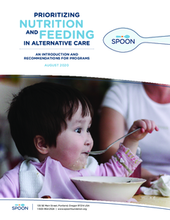Displaying 211 - 220 of 1482
Care of the State blends archival, oral history, interview and ethnographic data to study the changing relationships and kinship ties of children who lived in state residential care in socialist Hungary.
The various examples in this chapter from Care of the State: Relationships, Kinship and the State in Children’s Homes in Late Socialist Hungary show that children in care continued to have relations with their parents either figuratively or actually.
This introductory chapter presents the conceptual framework for the book 'Care of the State: Relationships, Kinship and the State in Children’s Homes in Late Socialist Hungary.'
This qualitative study, conducted in four child and youth care centres in the Tshwane region of South Africa, presents some techniques used by child and youth care workers to develop belonging.
The attitudes of staff working in residential care towards trauma-informed care were measured prior to the implementation of The Sanctuary Model, an organisation-wide model and 6- months post implementation.
This paper draws upon lessons from SPOON Foundation's work in 17 countries since 2008, summarizing the main nutrition considerations for children in alternative care and offering recommendations on integrating nutrition and feeding practices into alternative care programs. This paper also explores ways that nutrition can support the global movement to ensure every child has family-based care, while meeting the immediate needs of the millions of children currently in all types of alternative care.
Qualitative research based on a multiple‐case study was designed and carried out in Spain with the aim of deepening the understanding of the individual school experiences of three children in residential care.
This article reports on a study of children's experiences of being physically restrained by staff in a range of custodial settings, including Local Authority Secure Children's Homes, in the UK.
This preliminary scoping study aimed to explore approaches to family partnering within Australian therapeutic residential care (TRC), along with elements of best practice.
The objective of this study was to explore the effects of previous maltreatment on current self-representations (i.e., the attributes used to describe oneself) of youth in residential care and the moderating role of gender, age, number of previous placements and length of placement in residential care.

